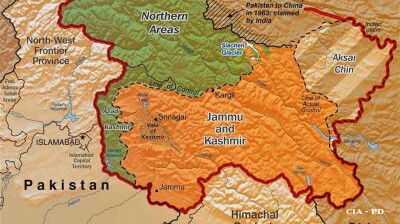Russia is strategically seeking to diversify its trade partnerships, aiming to replace lost European trade with new allies in the east. Russia has long-standing ties with Mongolia, which has grown in importance since the G7 sanctions regime was imposed last year and is home to trillions of dollars-worth of natural resources.
Deep-rooted cultural ties have spanned decades, with numerous Mongolian leaders, artists and scientists having received their education in the USSR or its Eastern European allies.
In recent years, Russia's business ties with Mongolia have grown stronger. Mongolia's role as a key player in enhancing Russia's connectivity with China is pivotal, benefiting both nations. Russia stands to bolster economic relations with China and the Asia-Pacific region, while the activity drives Mongolia's economic growth.
Mongolia's geographical location provides crucial transit and transport corridors, strategically significant for Russia. The Trans-Mongolian Railway, linking China to Russia's Trans-Siberian railway system, serves as a key route for the movement of goods between Russia and East Asia.
Over the past 25 years, Russian exports to Mongolia have steadily expanded at an annualised rate of 8.8%, from $218mn in 1996 to $1.81bn in 2021. In 2022, Russian-Mongolian trade surged by nearly 50% compared to 2021, reaching a historical high of $2.7bn, with expectations of surpassing $3bn by year-end. Russian exports make up nearly 95% of this trade turnover.
Russia's key exports to Mongolia include mineral products, particularly fuels, oils, energy commodities, as well as food products, agricultural raw materials, machinery, equipment, vehicles, chemical industry products, metals, and metal products. In contrast, Russia's primary imports from Mongolia consist of mineral products such as salt, sulphur, earth, stone, plastering materials, lime, and cement, along with articles of clothing and clothing accessories, machinery and railway locomotives.
Presently, Mongolia's exports to Russia account for less than 1% of its total exports. Nevertheless, Russia's supplies constitute a significant portion of Mongolia's imports, particularly for certain commodities: over 90% of petroleum products, 27% of foodstuffs, and 30% of electric power.
Building new ties in a post-Soviet world
The early 1990s marked a pivotal shift in Mongolia's relationship with the Soviet bloc, as Mongolia transitioned to its first democratically elected government. This transformation led to the cooling of previously close ties and the discontinuation of Russian technical aid after 1992. Additionally, Russia requested repayment of aid received from the Soviet Union from 1946 to 1990, amounting to nearly $180mn. However, since the turn of the millennium, Russia has been diligently working to strengthen its bond with Mongolia, aiming to elevate its status as a regional power – an effort that has only been spurred on by Russia’s break with the West.
In 2000, Russian President Vladimir Putin visited Mongolia and renewed a significant bilateral treaty, resulting in reduced prices for oil and energy exports to Mongolia and an upswing in cross-border trade. In 2016, Russia forgave 98% of Mongolia's state debt.
Russia aims to bolster its eastern relations through the Eurasian Economic Union (EEU), with Mongolia becoming the first state to sign a memorandum of co-operation with the Eurasian Economic Commission in 2015. Subsequently, a working group was established to explore expanding economic ties between EEU member states and Mongolia.
Russia also advocates for Mongolia's full membership in the China-led Shanghai Cooperation Organization (SCO), as Mongolia has been an observer state for over two decades. Mongolia has expressed interest in joining ASEAN (Association of Southeast Asian Nations) and has attended its meetings in the past. Russia is a dialogue partner within ASEAN.
All three countries – Russia, Mongolia and China – have signed several tripartite agreements since 2016, simplifying border clearance processes and promoting seamless transportation via road and railway along the corridor. A noteworthy agreement involves the comprehensive development of the China-Mongolia-Russia (CMR) economic corridor.
In September 2019, Russia and Mongolia signed a comprehensive strategic partnership agreement, bolstering their collaboration in politics, economy, trade, business, infrastructure and culture. Additionally, the two nations established the Russian-Mongolian Investment Cooperation Fund.
Efforts are underway to modernise the central railway corridor, including doubling railways, electrification and repairs. Practical implementation is expected to commence in 2024. The Eastern Railway Corridor is also taking shape, connecting the Trans-Siberian Railway, Northeast China's railways and Mongolia's eastern aimags. Mongolia plans to construct the missing Choibalsan-Huut-Bichigt section.
Road connections are expanding, with a significant portion of the AN-4 highway in western Mongolia now open, linking Western Siberia in Russia with China's Xinjiang Uygur Autonomous Region.
Crucially, the Power of Siberia 2 natural gas pipeline project is set to begin construction in 2024. Spanning 2,600 km, the pipeline connects Russia and China via Mongolia, with a gas capacity of 50bn cubic metres per year. It is anticipated to be operational by 2030, generating substantial transit fees and gas.
Features

The EU needs to change to stay geopolitically relevant
Leading EU figures are pushing for the unanimity rule used to make important decisions to be dropped to enable faster enlargement — one of the bloc’s main tools for geopolitical influence.

BEYOND THE BOSPORUS: Prosecutors make move on “fictitious export schemes” of Istanbul Gold Refinery
Observers point to intra-regime gangs seizing each other’s wealth, remember Erdogan’s “Hello Fatih” phone calls and ponder whether wanted man Turgay Ciner is in London.

Taliban visit to India upsets Pakistan, signals New Delhi's changing Afghan posture
Coinciding with the visit, Pakistan conducted military operations inside Afghanistan, followed by airstrikes on multiple border towns. Retaliation against Pakistan's police training facilities and border outposts followed.

Pakistan’s India-shaped chip on the shoulder, and why a peaceful coexistence is as elusive as ever
Pakistan must first redefine how it sees India - not solely as a threat to be contained but as a neighbour with whom coexistence is unavoidable. That psychological leap has eluded generations of Pakistani leaders.




